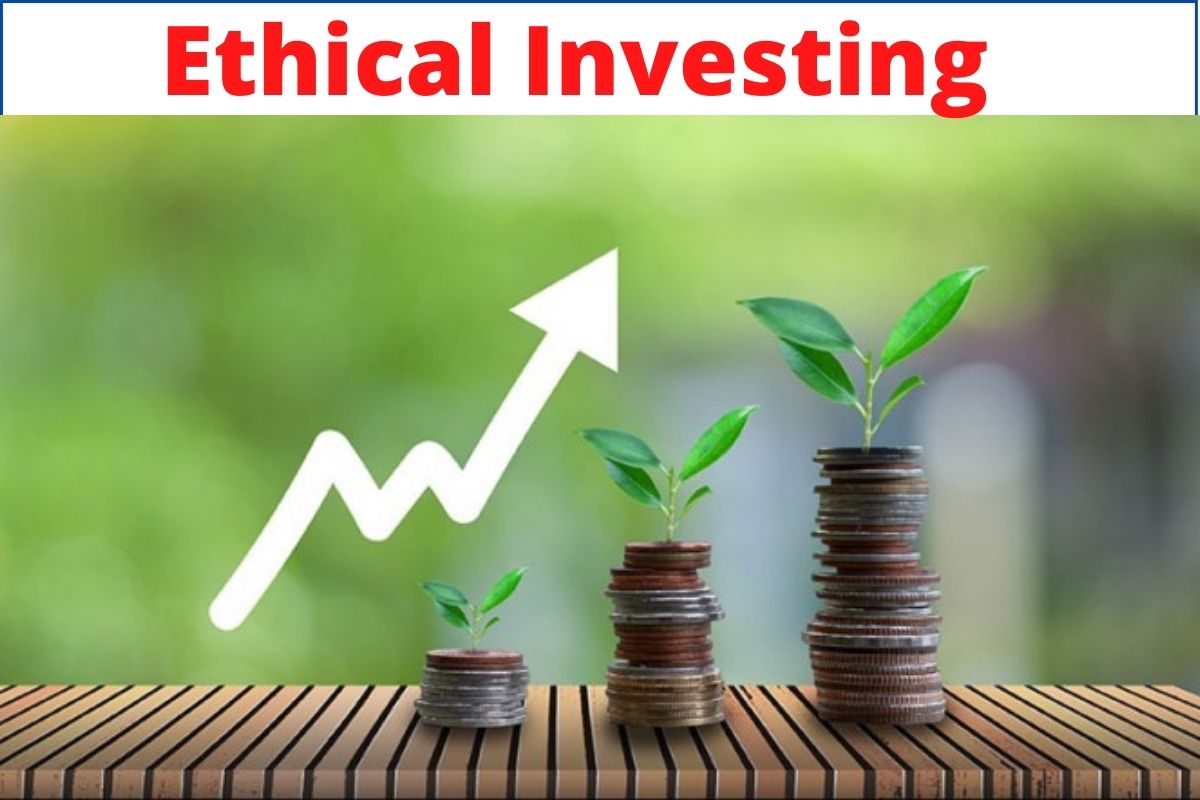When it comes to making financial decisions, most people are concerned with two things: growing your money and keeping it safe. A secondary concern is ensuring investments align with your personal values or beliefs.
We live in a world that is growing more conscious of the impact our actions have on others. That’s why today, so many ethical investment options go beyond just avoiding shares in industries like tobacco and arms manufacturers.
Ethical investing is all about making conscious decisions regarding where and how your money is invested. It goes beyond just avoiding companies involved in industries you don’t agree with, as there are now investment companies who screen their investments based on environmental and social factors.
This means you can still invest in companies you like, but you can do so knowing you are also making a positive difference in the world.
Unethical investment practices, however, can negatively impact the company being invested in and all associated businesses; for example, animal testing has a knock-on effect on other businesses such as cosmetics and clothing manufacturers who use animals as test subjects instead of alternative methods.
So, if you’re considering investing in a company, here are some pointers to consider when making your decision.
The Environmental Impact of a Company
A company’s impact on the environment is an important factor to consider when choosing ethical investments.
Companies with strong environmental policies and practices are likely to be more ethical overall. While it’s impossible to know exactly what goes on behind the scenes at a company, there are some things you can do to gauge the impact a company has on the environment.
Check the company’s website for information about their environmental policies and any sustainability initiatives they may be a part of. For example, both Apple and Google are members of the RE 100 initiative, which encourages global companies to run on 100% renewable electricity.
This information is far from comprehensive, but it’s a good place to start. If you want to dig deeper, companies like Ethical Investment Research and Carbon Footprint can help you assess the environmental impact of a company.
You can also use one of the many online resources to see how companies are rated on issues such as water use, greenhouse gas emissions, pollution, and biodiversity. Another option is to look for companies that are certified by organizations like the Forest Stewardship Council or the Carbon Disclosure Project.
Diversity Assessment
Diversity is an important factor to consider when choosing your investments, both ethically and financially. A company’s commitment to diversity in its hiring practices and its overall work culture can tell you a lot about its commitment to ethical practices.
When looking at companies you’re interested in investing in, try to find out what steps they are taking to improve diversity in the workplace. Does the company actively hire a diverse workforce? How many women are in leadership roles? How many minorities are employed? How many disabled employees are employed? Are the employees treated fairly and given equal opportunities for advancement?
You can often find this information in an annual report which will tell you the percentages of employees in high-level roles who are women, minorities and disabled people. You can also check to see if the company has a diverse board of directors or senior management team.
Employee Assessment
One of the most important aspects of ethical investing is assessing the company’s treatment of employees, including how fair it is when hiring, how it treats its current employees and how transparent it is about the conditions employees work in.
Unfortunately, many companies pay their workers poorly and/or give them poor working conditions. While there are some legal requirements for employee work conditions, it’s often difficult to enforce these.
If you have your eye on a specific company, there are a few things you can do to evaluate their employee conditions. Some key questions to ask include:
- How does the company recruit its employees?
- What is the pay scale for employees?
- Is there a high turnover rate among employees?
- What are the company’s policies when it comes to employee grievances?
- Is there a track record of mistreatment? And if so, what is the company doing to rectify its past mistakes?
Customer Relations Assessment
A company’s relationships with its customers can tell you a lot about the overall quality and sustainability of a business. If a company receives a high number of complaints, it’s often a sign that they are not following through on their promises or treating their customers poorly.
There are a number of places you can go to search for complaints against a company. These include the Better Business Bureau, the Consumer Protection website, and the Ripoff Report. If you see a high level of complaints against a company, it’s reasonable to question their ethics.
However, it’s important to note that a high volume of complaints doesn’t necessarily make a company unethical. It may simply mean that the company is struggling to meet the high demand for their products.
Style of Management
Another way to evaluate the ethics of a company is to examine the leadership team and board members. By assessing the style of management employed by a company, you can gain insight into how employees are treated, how decisions are made and how new products and ideas are developed.
You can do this by reading news articles about the company, checking out their website and reading their annual report.
The Work Culture
Finally, you should also consider the work culture at a company. Ethical companies will promote a positive work environment and set up a system for employee feedback. By reading the company’s mission statement and the employee handbook, you can get a sense of the work culture at the company.
To Sum It Up
It might seem scary to start researching a company’s ethics and the ethics of their competitors. But, this is a crucial step if you want to make sure your investments are ethical ones.
Even if you don’t know much about corporate ethics, it won’t take long for you to figure out which companies are more trustworthy than others. When you choose companies that align with your personal and professional values, you can feel confident in your investment knowing you are also making a positive impact.
And, if you ever feel like the company you’re investing in isn’t following the path you want them to go down, it’s easy to shift your money to another company.



